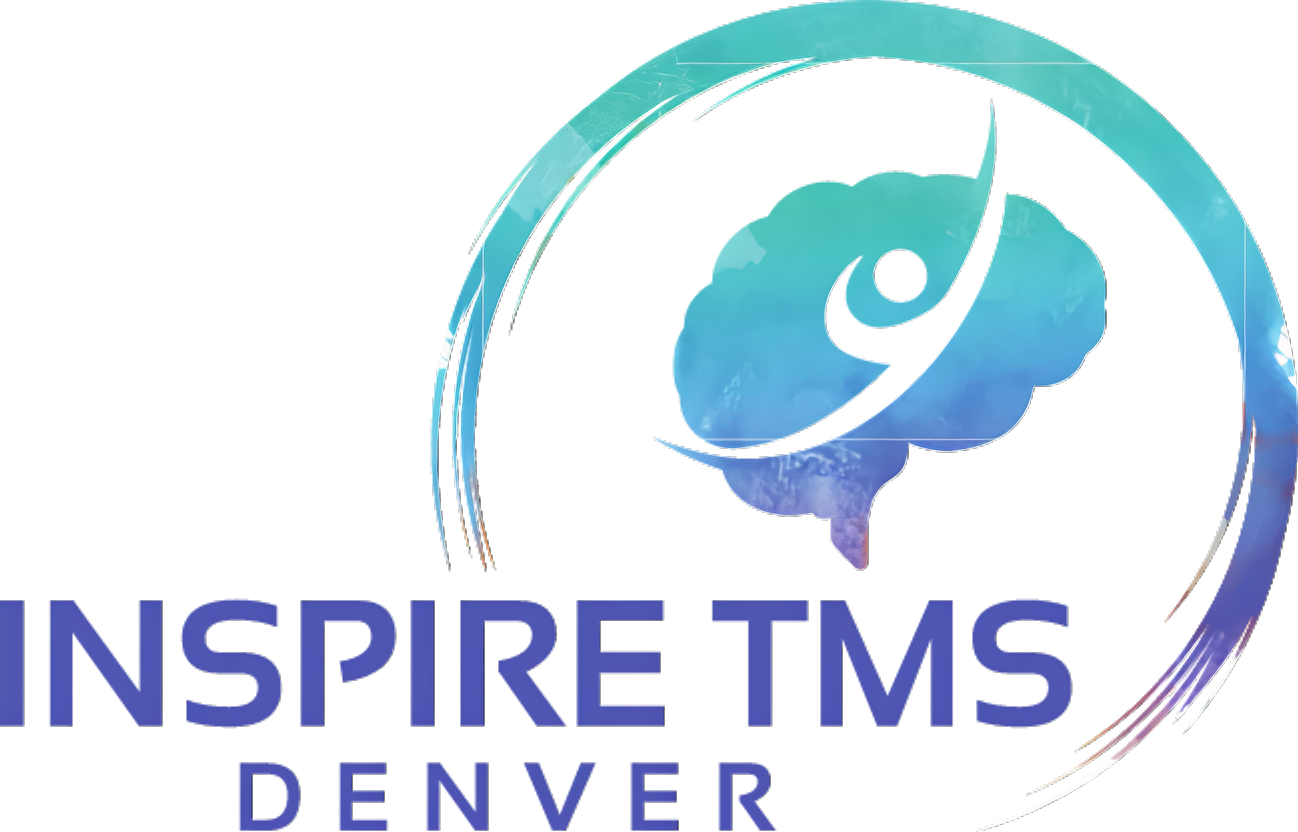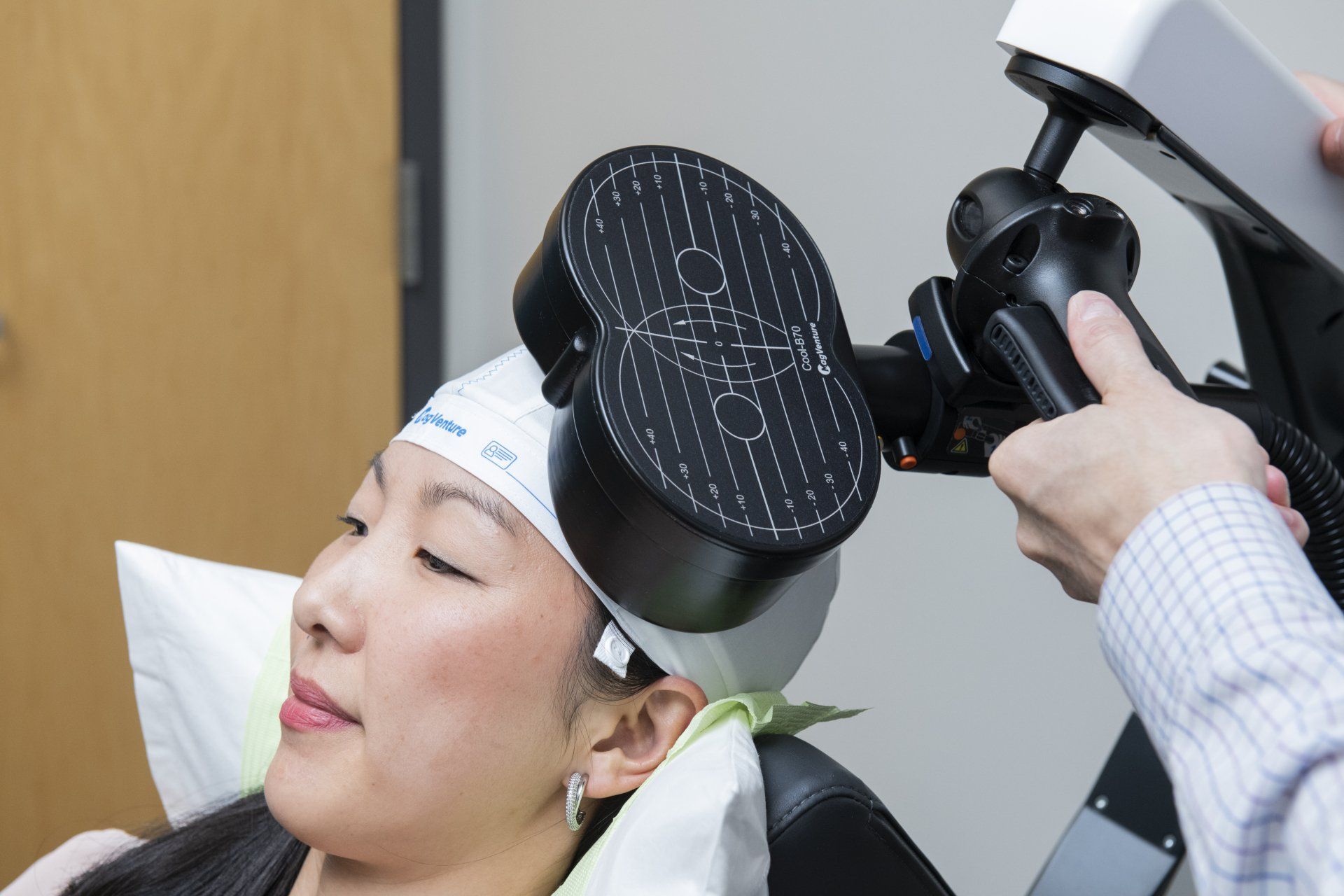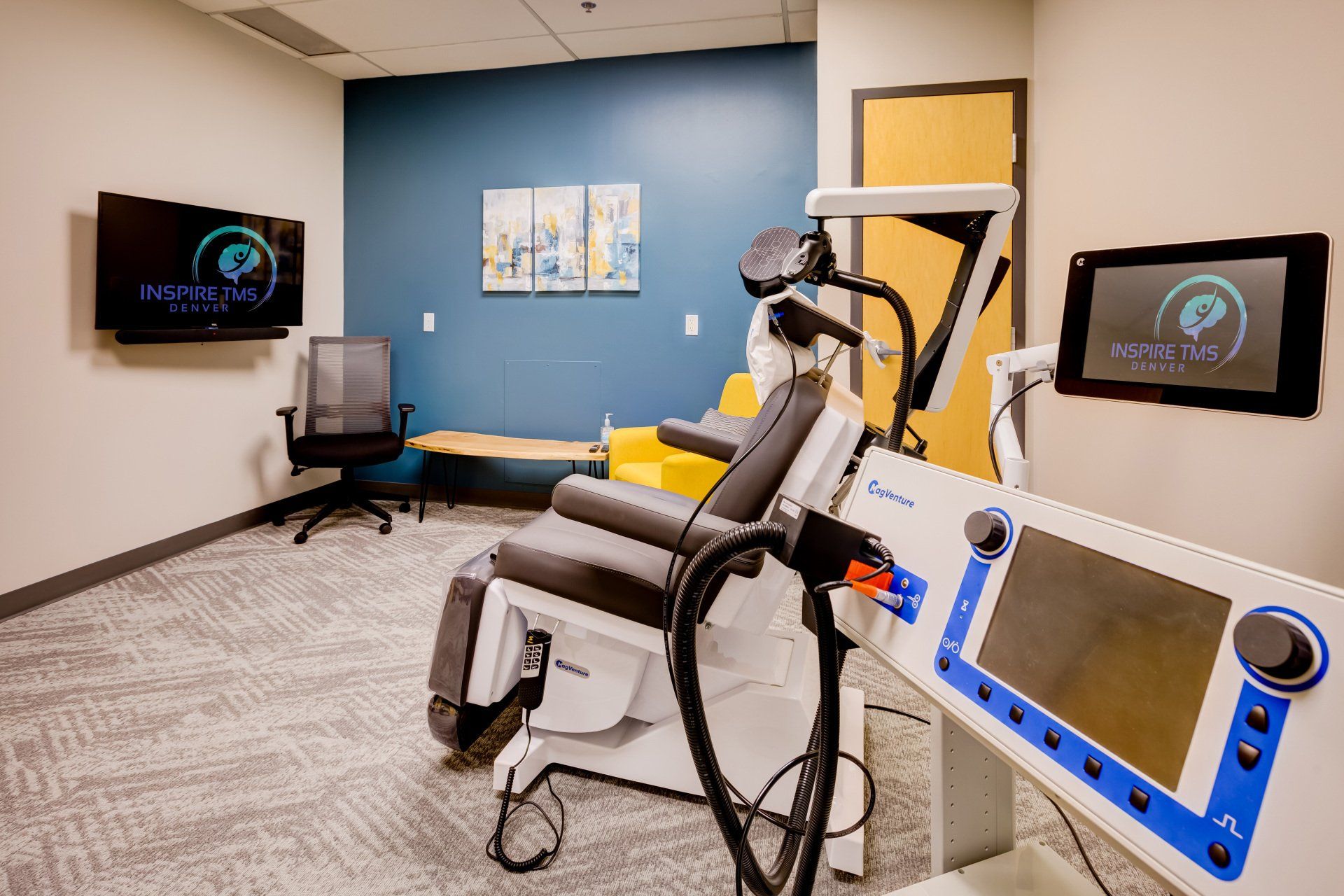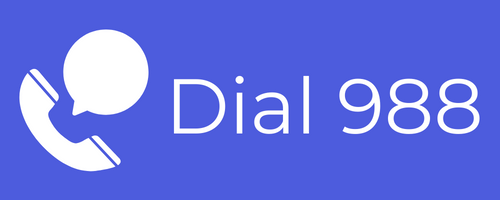MYTH - There Are No Side Effects With TMS
FACT – There are side effects with TMS, but they are overwhelmingly insignificant for most, typically mild, and do not impact every patient.
TMS therapy is cleared by the FDA, as safe and efficacious, for severe and treatment-resistant depression. Patients experiencing depression and considering TMS have often been prescribed a variety of antidepressants, many of which can cause significant side effects such as sexual dysfunction, weight gain, changes to sleep patterns, nausea, and headaches. Read more:
pros and cons of TMS →
In comparison, the common side effects of TMS, listed below, are typically short-lived, localized, and do not persist following a treatment course.
Some localized scalp discomfort such as a prickling sensation or tenderness can be an immediate effect of the focused repetitive magnetic pulses. This ceases with completion of the treatment session, and the majority of patients become desensitized to the ‘tapping’ pulses after a few sessions of TMS.
Headaches have been reported during
TMS treatment and are not unexpected or abnormal. A mild, over-the-counter analgesic before or after sessions often resolves any discomfort until desensitization to treatments occurs. Persistent headaches during a course of TMS are rare. Your technician may also adjust the strength of the magnetic waves to minimize the chance of headache should these occur. Patients stopping TMS treatment due to repeated and severe headaches is very rare. As with all medical interventions, side effects range from more common and tolerable, to exceptional and rare, as listed below.
Seizures during a course of TMS can occur, but are extremely isolated - about 1 in 89,000 sessions¹ and studies confirm most occurred in patients with a prior history of seizures, or the safety parameters of the stimulation had exceeded safety guidelines². A previous history of seizures can preclude patients from TMS treatment, therefore all patients are screened by their TMS provider before being accepted for therapy. Safeguarding checks are also made during all sessions alerting the practitioner to indications of imminent seizure. In these circumstances, the session will be immediately stopped, supportive care is provided, and emergency services are contacted.
Mania can be triggered in
Bipolar or undiagnosed Bipolar as a side effect of Transcranial Magnetic Stimulation. Protocols to safeguard patients against developing Mania are present in the same way as monitoring for potential seizures. Manic switches are extremely rare.³
Contraindications or pre-existing health conditions can change the nature and occurrence of side effects making it vital to fully disclose your medical history to your practitioner in your initial consultation. Contraindications would include a history of seizures, previous significant brain damage, and any foreign or medical devices above the neck that can conduct a magnetic field, such as cochlear implants.
MYTH – TMS Causes Memory Loss
FACT – No adverse effects on cognition, including memory impairment, have been identified to date in studies using Transcranial Magnetic Stimulation.
TMS trials to date reflect no changes or long-term adverse effects to cognitive health. Many studies have in fact shown that slight improvements in cognition can be seen with the use of TMS.⁴⁵
MYTH – TMS Causes Brain Damage
FACT – No Brain Damage has ever been identified from Transcranial Magnetic Stimulation.
Numerous studies have failed to find any detriment or damage to the brain by TMS treatment following the use of evidence based protocols.⁶ TMS is increasingly being researched as a tool to remedy or improve brain activity after brain damage, dementia, and strokes.
MYTH – TMS is Expensive and Health Insurance Companies Refuse to Cover Treatment
FACT – TMS treatment has been cleared by the FDA as a therapy for Treatment Resistant Major Depression and is covered by most health insurance companies. Out of pocket cost for TMS depends on an individual’s specific insurance coverage and is determined prior to treatment.
Please visit our page on insurance coverage and payment options here
Every effort is made to accommodate TMS treatment cost and to assist patients in getting the treatment they need. Please do not hesitate to
make an appointment here
MYTH – TMS is an Electrical Shock Treatment
FACT – TMS uses magnetic waves produced by electrical charges to stimulate or calm neuronal firing depending on the frequency of stimulation utilized.
TMS is confused with Electroconvulsive Therapy commonly. It is not ECT, however, nor does it involve direct electrical stimulation to the brain.
With that being said, ECT can effectively reverse extreme mental health symptoms. Electricity is delivered, under medical direction and anesthesia, directly on the patient's scalp to trigger a seizure.
Side effects of
ECT can include memory loss and other cognitive problems, most commonly around the treatments.
TMS on the other hand, is delivered non-invasively in an outpatient setting with no medications required to administer the procedure.
Share this Post








